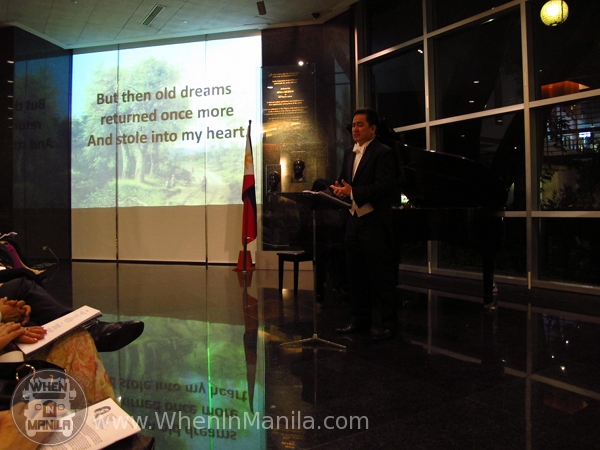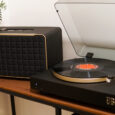The program was largely composed of art songs–”unions of poetry and music”–in German, French, Italian, English, and even Filipino. Art songs, I learned from the program, are sort of the “ancestor” to the modern love song. Instead of having a grand, concerto-like scale, art songs are usually short, the lyrics equal partner to the score. Groups of them are known as “song cycles,” in the same way we describe some artists’ albums as variations on one story or theme. In some of them we can see the familiar verse-chorus-verse-bridge-chorus format we know today, though many others are literally poems sung straight through.
I’d never really heard art songs before. Classical music pieces–those without lyrics–I’d listened to in abundance, being a fan of DZFE The Master’s Touch (98.7), one of the sponsors of the event. I’d also played the violin for four years, so composers such as Bach and Vivaldi–old standbys of the Suzuki method–were particular favorites. What struck me about art songs, however, was that while they sounded a lot like the “normal” classical and sacred (read: Church) music I’d been exposed to, the lyrics had more in common with pop songs today. In particular, a collection of Lieder by Robert Schumann bore themes that would not be out of place in a contemporary album. The first song, “Morgens seh’ ich auf und frage” (Each morning I awake and ask…) had lyrics that roughly translated:
Every morning I awake and ask
Will my sweetheart come today?
Every evening I like down,
Complaining that she did not appear.
All night long with my grief
I lie sleepless, lie awake;
Dreaming as if half asleep,
I wander through the day.
But the song that struck me most–sucker for “emo” love songs that I am–was the fourth in the Schumann song cycle: “Schöne Wiege meiner Leiden” (Cradle of my sorrows). Any teenager stuck in the throes of unrequited love could relate to the narrator (the songs are very much stories) when he goes: “I never wished to touch your heart, I never begged for love; all I wished was to live a quiet life where your breath could stir me.”
I’ll admit I wrote that down in my diary and underlined it. Thrice.






